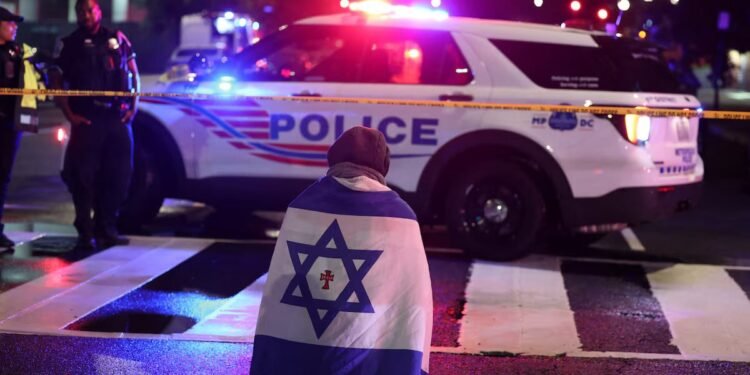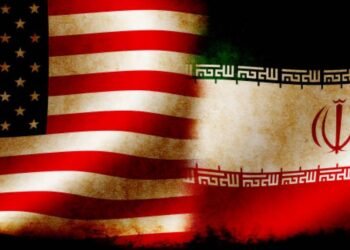WASHINGTON, D.C: Two staff members from the Israeli Embassy were killed Wednesday night in a shooting near the Capital Jewish Museum in Washington, DC, an incident that has sent shockwaves through diplomatic and political circles in both the United States and Israel. The victims, a man and a woman, were reportedly a couple planning to become engaged in Jerusalem next week. Their identities have not yet been released by officials.
Details of the Incident
According to law enforcement, the suspect, identified as 30-year-old Elias Rodriguez from Chicago, was seen pacing outside the museum before confronting four individuals and opening fire, killing two. After the attack, Rodriguez entered the museum and waited for police, reportedly telling them he committed the act “for Gaza” and shouting “Free, free Palestine” as he was taken into custody. Authorities believe Rodriguez acted alone and have stated there is no ongoing threat to the public.
The shooting occurred at approximately 9:05 PM local time, as the victims were leaving an event at the museum—a location frequented by tourists and situated near several government buildings, including the FBI’s Washington field office. The attack prompted a significant police response and the closure of several streets in the area.
Official Reactions
Israeli and U.S. officials have strongly condemned the attack, linking it to antisemitism and describing it as an assault on the Jewish community. Israel’s Foreign Minister Gideon Sa’ar expressed deep concern about the growing threat to Israeli diplomatic missions worldwide, noting that such attacks have become alarmingly frequent. Israeli Prime Minister Benjamin Netanyahu has ordered heightened security at all Israeli diplomatic missions globally in response.
Political and Historical Context
The shooting comes at a time of heightened tensions surrounding the conflict in Gaza. Analysts suggest that such incidents could bolster political support for Israeli Prime Minister Netanyahu and his right-wing allies, potentially leading to a harder stance in Gaza and increased international sympathy for Israel as it faces mounting pressure to ease its blockade of the territory.
This attack also echoes a significant historical precedent: in June 1982, the attempted assassination of Israeli ambassador Shlomo Argov in London by the Abu Nidal group triggered Israel’s invasion of Lebanon, leading to the 1982 Lebanon War. That incident was used as a casus belli by then-Defense Minister Ariel Sharon to launch a major military offensive, reshaping the regional landscape. While the current attack’s immediate ramifications remain to be seen, it underscores the potential for violence against diplomats to escalate broader geopolitical conflicts.
Ongoing Investigation
The FBI and DC Metropolitan Police are jointly investigating the shooting, with full cooperation from the Israeli Embassy. Leaders from both countries have pledged to bring the perpetrator to justice and to address the security of diplomatic personnel worldwide.
The incident serves as a somber reminder of the persistent risks faced by diplomats and the potential for such attacks to influence international policy and conflict dynamics.
-Zoe Law, Farouq Suleiman, Deborah Kyvrikosaios, and Dr. Shahid Siddiqui




















Your point of view caught my eye and was very interesting. Thanks. I have a question for you. https://accounts.binance.com/si-LK/register?ref=LBF8F65G